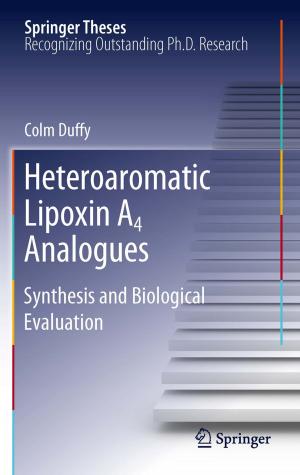Magnetoencephalography
From Signals to Dynamic Cortical Networks
Nonfiction, Health & Well Being, Medical, Specialties, Internal Medicine, Neurology, Science & Nature, Technology, Engineering| Author: | ISBN: | 9783642330452 | |
| Publisher: | Springer Berlin Heidelberg | Publication: | August 7, 2014 |
| Imprint: | Springer | Language: | English |
| Author: | |
| ISBN: | 9783642330452 |
| Publisher: | Springer Berlin Heidelberg |
| Publication: | August 7, 2014 |
| Imprint: | Springer |
| Language: | English |
Magnetoencephalography (MEG) is an invaluable functional brain imaging technique that provides direct, real-time monitoring of neuronal activity necessary for gaining insight into dynamic cortical networks. Our intentions with this book are to cover the richness and transdisciplinary nature of the MEG field, make it more accessible to newcomers and experienced researchers and to stimulate growth in the MEG area. The book presents a comprehensive overview of MEG basics and the latest developments in methodological, empirical and clinical research, directed toward master and doctoral students, as well as researchers. There are three levels of contributions: 1) tutorials on instrumentation, measurements, modeling, and experimental design; 2) topical reviews providing extensive coverage of relevant research topics; and 3) short contributions on open, challenging issues, future developments and novel applications. The topics range from neuromagnetic measurements, signal processing and source localization techniques to dynamic functional networks underlying perception and cognition in both health and disease. Topical reviews cover, among others: development on SQUID-based and novel sensors, multi-modal integration (low field MRI and MEG; EEG and fMRI), Bayesian approaches to multi-modal integration, direct neuronal imaging, novel noise reduction methods, source-space functional analysis, decoding of brain states, dynamic brain connectivity, sensory-motor integration, MEG studies on perception and cognition, thalamocortical oscillations, fetal and neonatal MEG, pediatric MEG studies, cognitive development, clinical applications of MEG in epilepsy, pre-surgical mapping, stroke, schizophrenia, stuttering, traumatic brain injury, post-traumatic stress disorder, depression, autism, aging and neurodegeneration, MEG applications in cognitive neuropharmacology and an overview of the major open-source analysis tools.
Magnetoencephalography (MEG) is an invaluable functional brain imaging technique that provides direct, real-time monitoring of neuronal activity necessary for gaining insight into dynamic cortical networks. Our intentions with this book are to cover the richness and transdisciplinary nature of the MEG field, make it more accessible to newcomers and experienced researchers and to stimulate growth in the MEG area. The book presents a comprehensive overview of MEG basics and the latest developments in methodological, empirical and clinical research, directed toward master and doctoral students, as well as researchers. There are three levels of contributions: 1) tutorials on instrumentation, measurements, modeling, and experimental design; 2) topical reviews providing extensive coverage of relevant research topics; and 3) short contributions on open, challenging issues, future developments and novel applications. The topics range from neuromagnetic measurements, signal processing and source localization techniques to dynamic functional networks underlying perception and cognition in both health and disease. Topical reviews cover, among others: development on SQUID-based and novel sensors, multi-modal integration (low field MRI and MEG; EEG and fMRI), Bayesian approaches to multi-modal integration, direct neuronal imaging, novel noise reduction methods, source-space functional analysis, decoding of brain states, dynamic brain connectivity, sensory-motor integration, MEG studies on perception and cognition, thalamocortical oscillations, fetal and neonatal MEG, pediatric MEG studies, cognitive development, clinical applications of MEG in epilepsy, pre-surgical mapping, stroke, schizophrenia, stuttering, traumatic brain injury, post-traumatic stress disorder, depression, autism, aging and neurodegeneration, MEG applications in cognitive neuropharmacology and an overview of the major open-source analysis tools.















